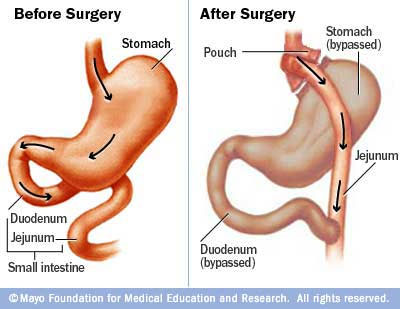Your Shopping Cart Is Empty
Defination
Bariatrics: The field of medicine that offers treatment for the person who is overweight with a comprehensive program including diet and nutrition, exercise, behavior modification, lifestyle changes and, when indicated, the prescription of appetite suppressants and other appropriate medications. Bariatrics also includes research into overweight, its causes, prevention, and treatment. The word bariatrics was derived in the 20th century from the Greek baros (weight) + -iatrics (medical treatment). Other words derived from the same Greek root include barium and barometer. Patients with morbid obesity are assessed by a multidisciplinary team representing the fields of nutrition, psychiatry, medicine and surgery, and perform a thorough physical examination and investigations.

Bariatrics is the field of medicine that specializes in treating obesity. Bariatric surgery is the term for operations to help promote weight loss. Bariatric surgical procedures are only considered for people with severe obesity and not for individuals with a mild weight problem and who are overweight. There are many detrimental health effects of obesity with an increased risk of developing heart disease, diabetes, gall bladder disease, asthma, obstructive sleep apnoea, chronic musculoskeletal problems, polycystic ovary syndrome, impaired fertility, psychosocial problem as well as some forms of cancer.
Diagnosis
Although not a direct measure of body fat, the Body Mass Index is widely adopted and promoted as a marker for excess body weight.[9] However, it is not flawless: a very muscular person may be assessed as obese, and an elderly person with low body weight but high body fat (this can happen due to low muscle mass and bone density) may be assessed as healthy. Other markers for the evaluation of obesity include waist circumference (associated with central obesity), and a patient’s risk factors for diseases and conditions associated with obesity.[10] Besides these indirect methods, body fat can also be measured directly.
Obesity prevention
Obesity can be prevented in many ways and the best time to start prevention is from a young age, you can help your children to stay away from fatty foods and unhealthy lives even if it is too late for you. If you prevent obesity you are also preventing medical conditions such as chronic diseases like diabetes, high cholesterol, high blood pressure, heart disease, arthritis and cancers. Preventing obesity is one of the main things that we need to focus on with obesity being the world biggest health epidemic at the moment and on the rise. Many people are loosing out on exercise and children are suffering the most. Obesity can be prevented by consuming a varied diet and getting plenty of exercise. Low carbohydrate diet programmes also doesn’t give off the desired effect as they focus mainly on high protein substitutes; the body uses up stored energy and muscle instead of the carbohydrates it needs, leaving you tired and dull. The correct protein supplement can give you the edge required to reach your fat loss or muscle building goals faster. Be sure to choose a protein supplement that is designed with the results you want in mind. Taking the stairs instead of the lift and walking to the shop instead of taking the car, will help you get the exercise that you need to burn your fat.
